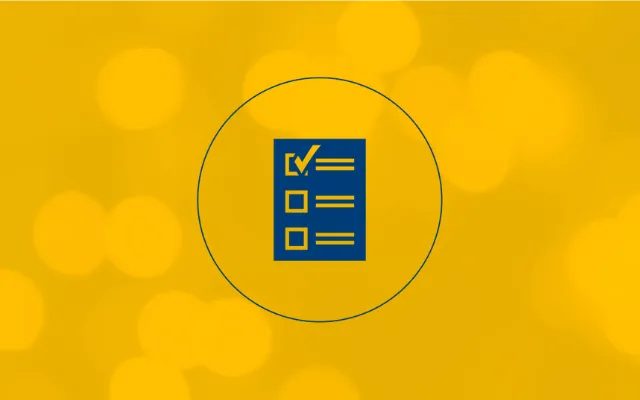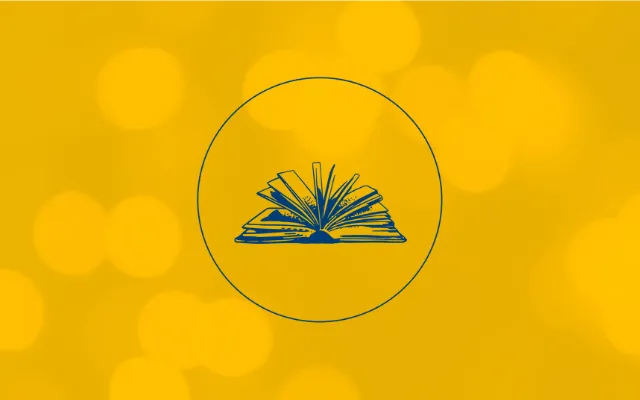Prep for Success
Prep for success
ULife Hack #5
So far, you’ve been welcomed to ULethbridge, got a heads up on some important ‘adulting’ lessons, explored the campus and made some friends by joining clubs and extracurriculars.
You’re probably thinking, ‘what about the school part? You know, the reason we’re all here in the first place? Well, before we can ‘hit the books,’ we need to plan our courses according to our Program Planning Guides (PPG), purchase textbooks and make sure the path we’re on is still the right one.

Program Planning
Your program planning guide (PPG) may be the most important document you have at ULethbridge. This document outlines the requirements for your major. The guide you will follow is going to stay the same for all four of your years at ULethbridge—for example: if you begin your studies in 2022 in neuroscience, you would use the 2022 PPG for your entire undergraduate experience. Keep it up-to-date and refer to it often for course registration and general program planning.
Working with your PPG will help you decide what courses you should take each semester and make informed decisions about your course load.
Within the PPG, you will find a sample sequencing plan. This is just one example of how you COULD complete your major and degree requirements. You may find that a different sequence works better for you, which is perfectly fine. Just make sure that you take the courses you need to complete your degree and be mindful of any prerequisites to complete these in sequence.
Occasionally course names/numbers will change (same requirement, just a different name), and you will receive a notification email, so be sure to write down these changes in your program planning guide.
It is each student’s responsibility to make course selection decisions and fill in their PPG. However, advisors can help you understand how to use your PPG and answer specific questions you have, such as if you’re planning to change programs or add a minor or concentration.
Following your PPG will help you stay on track for graduation.
Find your guide by clicking on the year you enrolled.

Academic Advising
Many students chat with academic advisors for help with program planning, course selection and asking questions about graduation. The advisors are there to help but not to decide for you—you are the one responsible for fulfilling your degree requirements with the help of your PPG and the resources available to you.
Connect with advisors early on in your degree and as often as you need.

Textbooks
The ULethbridge Bookstore offers new, used and rental textbooks and ebooks and course packs, as well as tons of other supplies and great ULethbridge branded swag to help you rep your university. Visit the Bookstore website to learn more about your choices. When visiting the bookstore website, click ‘course materials,’ then ‘Textbook Express,’ which will take you to the Bridge. From there, if you go to ‘Student’ and ‘Textbook finder’ then ‘Click to see the books in the bookstore,’ your entire textbook list is ready in your bookstore cart for checkout! You can also look up classes and related textbooks for each term here.
While some students opt for new textbooks from the Bookstore, many opt for used textbooks instead. In fact, most of the students surveyed for this guide opted for used textbooks. Most students choose to wait until their classes begin as not all professors use textbooks the same way in their classes and may not advise every student to purchase one.
Many students are also part of unofficial Facebook groups such as the ‘U of L used Book Exchange’ and other groups about off-campus housing. Always proceed with caution as these sites are not regulated or associated with the University. However, many students exchange advice and offer help in these Facebook and Discord groups.

Accomodated learning
By registering with the Accessible Learning Centre (ALC), students with a documented disability will be able to access supports, resources and accommodations. This includes a private testing space or more time on exams for some.
There is a step-by-step guide for new and continuing students outlining how to register with the ALC on the website. Learn more about the ALC and register.

Student success
The Student Success Centre offers peer mentoring, workshops, various tutorials, online learning resources and other supports. For those looking to create a study plan for the semester, you can book an appointment with a peer learning mentor or join an ‘accountability crew’ or the ‘academic resilience group.’ The centre is open Monday to Friday from 8:30 – 4:30 p.m. Learn more about the Student Success Centre.

Student Wellness Ambassador Program
The Student Wellness Ambassador Program (S.W.A.P.) helps promote student engagement and wellness by focusing on students’ needs. The committee plans events and finds supportive ways to get students to connect and receive support to improve their overall wellness. The S.W.A.P. team is comprised of an energetic and compassionate team of ULethbridge students who are trained peer listeners. Email swap@uleth.ca to learn more.
Image
 Registration
Registration

So, it’s time to register for your classes... but where do you begin. Head over to the Bridge. You’ll find registration under ‘Student.’ Once you click on ‘Registration,’ you can add, drop, or withdraw from classes and see your course schedule. Underneath ‘Registration Status,’ you will find your registration times, as well as the number of course credits you have accumulated.
Make a note of your time to register in classes. Also, record the courses in your PPG that fit with your goals. Once you have that information, still under ‘Registration’ on the Bridge, click ‘Look Up Classes’ and then select next term. I suggest navigating to the bottom of the page and clicking on ‘Advanced Search.’
Once in ‘Advanced Search,’ choose which subject courses you hope to take fall under. Remember that sometimes classes from the same faculty are still listed under different ‘Subjects’ for example, ‘Accounting’ courses are listed separately from ‘Management,’ and ‘Psychology’ courses are listed separately from ‘Sociology’ or ‘Neuroscience’ even though they may contribute to the same degree.
After choosing a subject, I recommend navigating straight down to the search bar, as all the courses that show next will include information on where they are taught (Lethbridge, Calgary, online, room, etc).
Using a combination of physical planners, spreadsheets in Excel, or websites such as ‘course hero’ and ‘college schedule planner’ or similar, record classes you would like to take and the CRN number listed in blue before them. This number is significant to registration.
Once a class is closed, you can no longer select it. If you run into this issue, find out about course waitlists with Academic Advising.
Ensure the courses you recorded do not conflict in timing and that you have the prerequisites for all of them. Have a few backup classes up your sleeve in case some of the courses fill up before you have a chance to register—your registration window is determined by the amount of course credit you have accumulated. Therefore, students closer to the end of their degree have a better chance of getting their first pick.
Once it’s your registration window, navigate to ‘Add, Drop or Withdraw from Classes’ and add the CRNs into the empty boxes at the bottom of the page labelled ‘Add Classes Worksheet’ and press ‘Submit Changes.’
Again, under ‘Registration,’ once you are registered in classes, the ‘Student Detail Schedule’ outlines each course individually, while the ‘Week at a Glance’ schedule is the schedule I use most. By changing the date at the top of the page, you can see your course schedule for each week. Done!
Registration Legend
OL = Online | Course is offered online. It may be synchronous or asynchronous. To begin this course, students must go to Moodle. Access to this site opens on the first day of classes.
BL = Blended Learning | Course will be offered in a combination of online and face-to-face. Check with Instructor for technical requirements and meeting times.
CL = Cross-listed | Register in other course section cross-listed with this course.
DC = Dual Credit | Course is available to high school students participating in Dual Credit.
‘Days’ = Days of the week class is offered
*R=Thursday, S=Saturday
Definitions
Synchronous: A course that meets on specific, scheduled days and times for live instruction, discussion, and course work.
Asynchronous: An online course with no specific days or times scheduled. You will complete all course components on your own time and schedule. Follow the instructor’s instructions to complete all required reading, assignments and assessments by the deadlines set by your instructor.
WHAT STUDENTS SAY ABOUT THE BEST APPROACH TO SNAGGING TEXTBOOKS
“I would pretty much always get my textbooks. I was a very holistic student, so the idea that there could be something that I might be tested on that I didn’t read because I didn’t have the textbook would terrify me. Having and using the textbooks gave me peace of mind that I was covering everything. And I would take whatever the Bookstore had. New or used. Both work.” - Makita
“Due to my degree, I’ve always had to buy them new, so, unfortunately, you can’t always get the most affordable deal.” - Victoria
“I chose to purchase mine because I have needed to refer back to first-year textbooks even at the end of my degree!” - Haley G
“I like to buy used textbooks when they are available. However, if they aren’t, I will buy new ones because I like to be able to write and highlight within the textbooks.” - Cheyenne
“Always, always, always buy used if you can. ‘U of L used book exchange’ on Facebook was where I got the majority of my books. Or make friends with someone in the year above you and buy all of their books.” - Katrina
“My typical choice for textbooks is renting the E-version or buying used. These options are much cheaper and usually easy to find. There is a great Facebook group called ‘U of L used book exchange.’ I have almost always been able to find a textbook using the group.” - Nicko
“If you are getting textbooks, buy used ones. They are usually in good condition, they have the same information in them, and they have little hints from previous owners (think Harry Potter and the Half-Blood Prince). Plus, they’re cheaper.” - Hana
“I usually opt for used textbooks because they are significantly cheaper and typically in good quality. I always buy textbooks, but I would say renting is a better option for those who know they will never reread their textbooks or do not want to go through the trouble of reselling them.” - Julisha
“I always go for used textbooks. I find that notes left from previous owners can help you focus on key concepts, and as someone who struggles with funding, it’s way easier to budget. There are also Facebook groups you can join where students trade books.” - Ziara
“I tend to go with renting used textbooks to save money, but it depends on how much use I think I’ll get from the textbook! For example, I purchased a new NEUR 2600 textbook as I knew I would need to reference it a lot later in my degree; however, I only rented my SPAN 2000 textbook because I knew I’d only use it for that class. I also frequently check Facebook for other students selling their textbooks!” - Cayley
“I always tried to rent the textbooks if the professor recommended them. Sometimes I had to buy new versions, but I always just thought of it as added into the tuition cost.” - Derek
“I opted for a mixture of new, used and rentals. What I found important was to weigh each cost. Sometimes it’s more valuable to have a new textbook as the rental price will be similar, and sometimes a rental is way more cost-effective. It’s also important to weigh whether you love the topic and would find value in keeping the book afterwards. I have a huge stash of smaller history books and novels from English classes I kept and still value today. There is also a real value in used books as I found a lot of the time, I was acquiring knowledge from the highlights and notes of former students.” - Angelica
“After the first year, I didn’t buy any textbooks. They’re rarely used in my major, and you will usually have a friend that has it if you want to read one section.” - Jace
“I would only ever buy used. Usually, I would buy a textbook after the first week of classes because, in many cases, everything you need is already given through PowerPoint slides or class notes. But everybody is different, so if you feel like you want the textbook, then go right ahead.” - Cassady
WHAT ADVICE DO STUDENTS OFFER FOR COURSE PREP AND PLANNING AT ULETHBRIDGE
“Utilize your program planning guide! It helps to give you a full picture of your required courses and how to balance each semester. Ask people in later years about how they structured their degree and what worked for them, because every degree is different.” - Haley G
“Always keep an updated copy of your program planning guide. That way, each semester, when courses open, you have an idea of what classes you need, both for your major and for the LibEd requirements. If you don’t know how to fill it out, you can talk to an academic advisor.” - Cassady
“Academic Advising is always my go-to for course planning advice. The advisors are so helpful and usually know certain things you wouldn’t know on your own, such as specific tips about which classes to take at which times. On a less formal level, I would tell students not to feel like they need to follow suggestions or timelines all the time. For example, I found that labs often took up just as much time as the courses themselves, meaning it was like an extra class! For this reason and athletic reasons, I decided to take my degree over five years. This was a great decision for me, as it allowed me to have a bit of a lighter course load and give tougher courses the extra time and attention they needed while balancing everything else I had going on in my life. While I felt a little behind at times, not doing the traditional timeline, I realize now that an extra semester or two is no big deal. This is an exciting time in our lives that really does fly by so quickly. Take advantage of it and go at a pace that works for you!” - Madeline
“The majority of the time, you should do your own research on courses, but academic advisors are great with helping to direct you. Don’t base course selection on location and the time you have between classes. Choose the classes you want or need.” - Chloe
“This is mostly personal preference. I liked to have my classes bundled back-to-back so that I’d have less time waiting between classes. I would also avoid any three-hour classes because it’s hard to focus in them. It didn’t really matter the distance between classes because you’d usually have enough time to get from one part of campus to another in that break between classes.” - Jace
“Start the first year trying out what you are interested in and getting prerequisites. As a science major, I try to have a mix of exam-based application classes, exam-based memorization classes, and writing-based classes each semester. Once you get further into university and figure out the direction you want to go, you can plan a vague schedule for the future to ensure you get everything you want to take. It does not matter where classes are physically located, you can get everywhere in 10 minutes, and profs are good at staying to their allotted time.” - Tabitha
“My best advice for course planning is to think realistically. Many people are ambitious when they plan but make sure your plan is one that you can manage. This advice applies to practical aspects—accounting for the time and distance between your classes and not scheduling too many classes on the same day. It also applies to the workload itself because taking too many courses can cause you to get overwhelmed and burn out early in the semester.” - Julisha
“One of the strategies that worked best for me was planning out my courses, so they were an hour or more apart. Then I could study for the class immediately after being in the class. It’s a lot less context switching that way.” - Derek
“My best advice is to plan ahead of time and not two days before registration opens!! I’ve personally found it helpful to talk to other students in my major (especially students who are a year or two ahead of me) to see what each class is like so I know which ones will complement one another in regard to content and the amount of coursework. Academic Advising is also a great place to go when you’re unsure of what courses you should be taking, and if you check your Program Planning Guide, you can see a recommended schedule for each semester!” - Cayley
